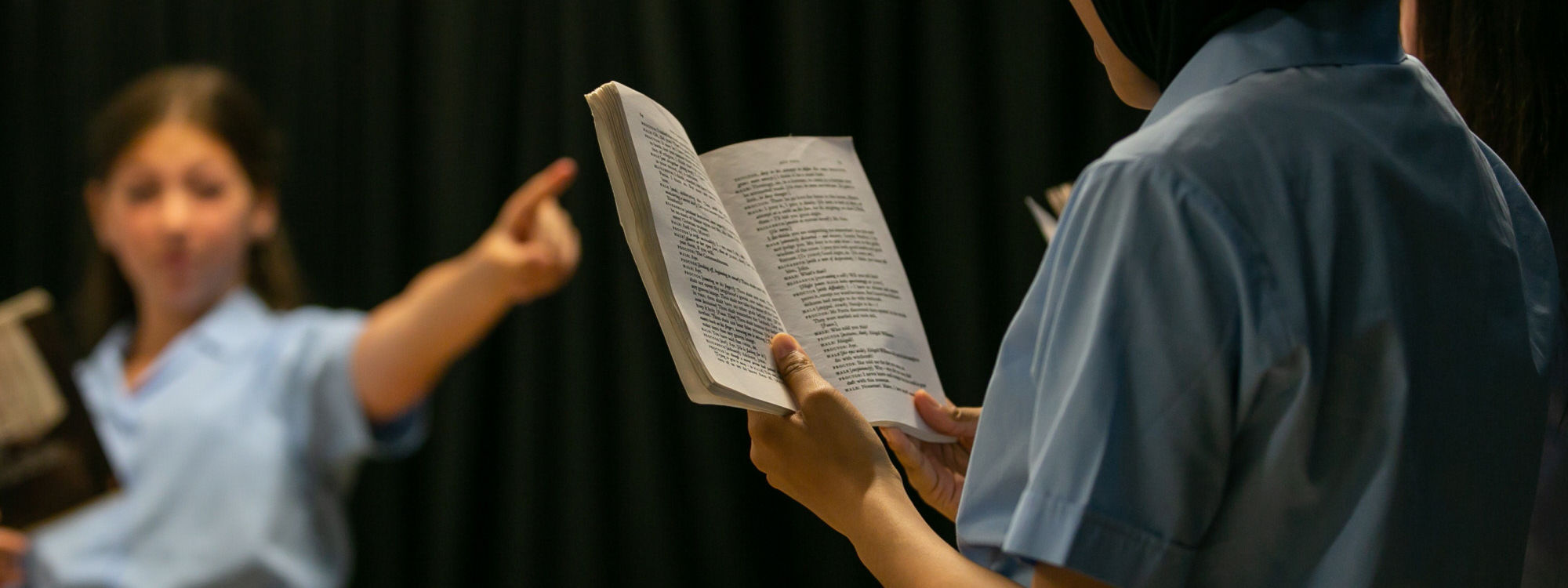Drama
Back to Subjects MenuWhat is it to be a Drama Student at BCHS?
To be a Drama student at BCHS is not just any drama, it enhances the whole of the person. The schools unique approach, which includes Cultural Capital, enables learners to enhance essential personal social skills and to explore perspectives by identifying influential social, cultural, historical and political contexts. BCHS drama develops instinct, trust, inspiring the student to identify and develop transferable skills of teamwork, problem solving, compromise, communication, confidence, presentation skills and focus.
BCHS Drama inspires learners to take risks and challenge themselves to experience situations from any person or characters viewpoint.
Creativity is not just performance skills, music, or art, it also inspires opportunities to develop the creative mind, applying it to other subjects within the whole of the curriculum.
Subject Overview - Year 7-11
Subject Overview - Year 7-11
Year 7 -9
At KS3, learners are encouraged to work collaboratively, to take risks in vocal and physical work and increase confidence in performance. For learners to be able to devise from any given stimulus and texts including plays, poetry, photographs, music, objects and articles. The Learning grows from the development of Explorative Strategies, Drama Mediums and Elements of Drama and to have a sound understanding of how to shape and structure a piece of drama. To learn to be a supportive audience member and to give/receive constructive criticism to improve work and make progress.
Learners build on basic knowledge of technical theatre practices, which feeds into GCSE and A Level. They are encouraged to consider elements such as acting, costume, lighting, and props and how to breathe life into a performance. Topics covered include units that focus on specific Drama skills, Historical drama, Role Play and Improvisation, Shakespeare, Working from script and devising original pieces of Drama.
Year 10 - 11
BCHS GCSE Drama at KS4 builds on the foundations of KS3 offering more challenging opportunities at a higher level. Learners will be following the Edexcel GCSE Drama, which has
three units; Component 1, Devising this benefits the learners to explore their creativity as writers and devisers, developing their own original performances. They are encouraged to study practitioners past and present, applying specific acting styles to a performance; Component 2 Performance from Text, is taking a published play from the page to the stage performing and responding to drama in-group or solo performances; Component 3, Theatre Makers in Practice, written exam element is a very broad study of multiple elements that make theatre. Learners study a published play, watch performances from a wide range of directors, study the text and are encouraged to think how they would produce the performance and think like a director, prop designer or lighting director. This will be achieved by exploring performance texts, understanding their social, cultural and historical context, including the theatrical conventions of the period. Learners will reflect and evaluate their own work and that of others, progressing a proficient consciousness of what is historical and contemporary professional theatre.
CURRICULUM MAP
Enrichment
Drama Club, Comedy Club, School Shows, Theatre Trips, Workshops, Glee Club, GCSE Practical support rehearsals.
How do we contribute to PHSEE, British Values and SMSC?
Learners are encouraged to explore their own feelings, beliefs and ideas to find meaning and develop Drama work based on a wide variety of subject matters and stimuli. As part of the curriculum, learners at both key stages are motivated to investigate and submit reasons about moral and ethical issues. Tolerance and respect of difference in voice face, gesture, movement – character difference. Throughout both key stages, learners encouraged to take responsibility for their own actions, by learning what is right and wrong through effective communication, cooperation and sensitivity.
What careers does Drama support?
Actor, Director, Singer, Dancer, Lighting designer/technician, Sound Designer/ Technician, Costume Designer, Community Arts Worker, Drama Therapist, Lawyer, Politician, Arts Administrator, Youth Worker, Teaching, Theatre Education Officer, Public Relations, Sales positions.




